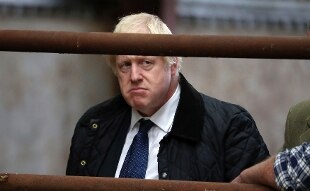- Brexit: the suspension of Parliament is legal, now appealing to the Supreme Court
- Brexit, new vote in Parliament on early elections
- London, yes of the Municipalities to the motion against Brexit without agreement
- Brexit: Parliament's go-ahead, the anti-no-law law tomorrow
- Brexit reopens Parliament and aims to postpone it. Johnson loses the majority
- Brexit, UN report forecasts losses of 16 billion in Britain's exports
Share
06 September 2019The Chamber of Lords has definitively approved the text of the law that aims to block an exit of the United Kingdom from the European Union without agreement. This is a new "defeat" for the prime minister, Boris Johnson, who opposed this initiative. The law asking Johnson to solicit a three-month postponement of Brexit in Brussels (scheduled for October 31, 2019), should come into force next Monday, after the approval of Queen Elizabeth II.The procedure of the law
The passage of the law was completed in the House of Lords after it had been promoted to the Municipalities by oppositions and a group of dissident Tories. Now all that remains is the "Royal assent" and the deposit in Westminster scheduled for Monday, which is the same day that the Johnson government intends to re-propose a motion in favor of the early political vote in mid-October.
Joint oppositions
On this motion the oppositions seem to be aimed at missing the quorum. This was confirmed today by the foreign affairs president of the shadow Labor government, Emily Thornberry, on the sidelines of a conference call held by her party leader, Jeremy Corbyn, with parliamentary leaders from all other opposition forces to coordinate positions. Meeting in which the desire to guarantee the stop at the request of a brexit without agreement (no deal) was reiterated. Corbyn's suspicion that the Scottish SNP separatists may eventually parade giving the go-ahead to the immediate vote - for fear that voters will interpret the delay tactic as a form of fear, as Johnson already blamed on opponents - was meanwhile for now denied by the group leader in Westminster of this formation, the third for consistency to the Municipalities after Tory and Labor, Ian Blackford.
Suspension of parliamentary work
The suspension of the Parliament is legal and the petition against Prime Minister Boris Johnson's decision to suspend the work was rejected. This was decided by the judges of the High Court. The case, writes the BBC website, was presented by businesswoman Gina Miller, a supporter of how the move represented "an abuse of illegal power". Rejecting Mrs. Miller's claim, Lord Justice Burnett said he could appeal immediately because of the important points of law at stake. The appeal should be heard by the Supreme Court next September 17th. A similar legal appeal heard at the Edinburgh Session Court last Wednesday had failed, while another legal action is underway in Northern Ireland to prevent Parliament from being suspended. "My group and I will never give up the battle for democracy - Gina Miller said to the media -. Abandoning now would mean missing our duty, but instead we want to keep fighting for the world and future generations".
It's already an electoral campaign
Meanwhile, Boris Johnson is already campaigning in anti-breit Scotland: he sees the queen and allocates 200 million pounds for local farmers. Johnson wants to push the opposition to give the go-ahead to the new motion in favor of the vote announced by the government to the municipalities for next Monday. During the Scottish lightning visit, Johnson is planning a meeting with the queen in Balmoral castle, but above all intends to use the promise of over 200 million pounds (160 allocated yesterday, another 51 within two years) to be allocated in view of brexit in support of agriculture in Scotland.

